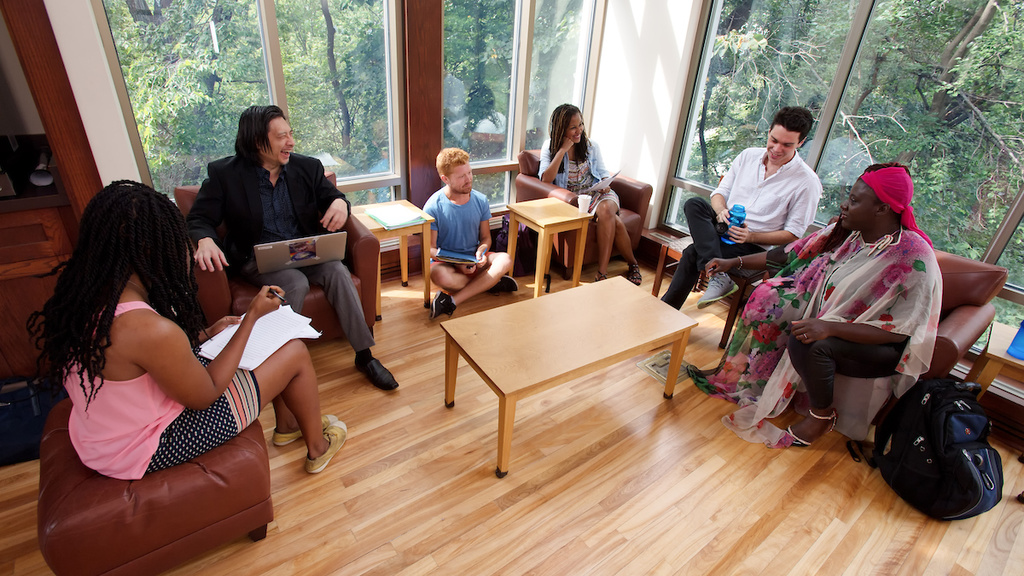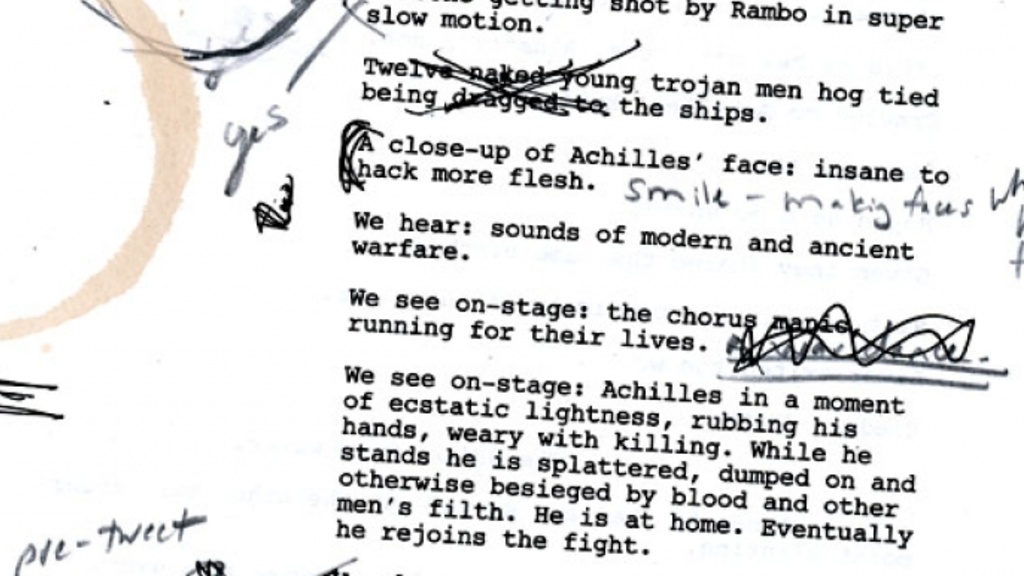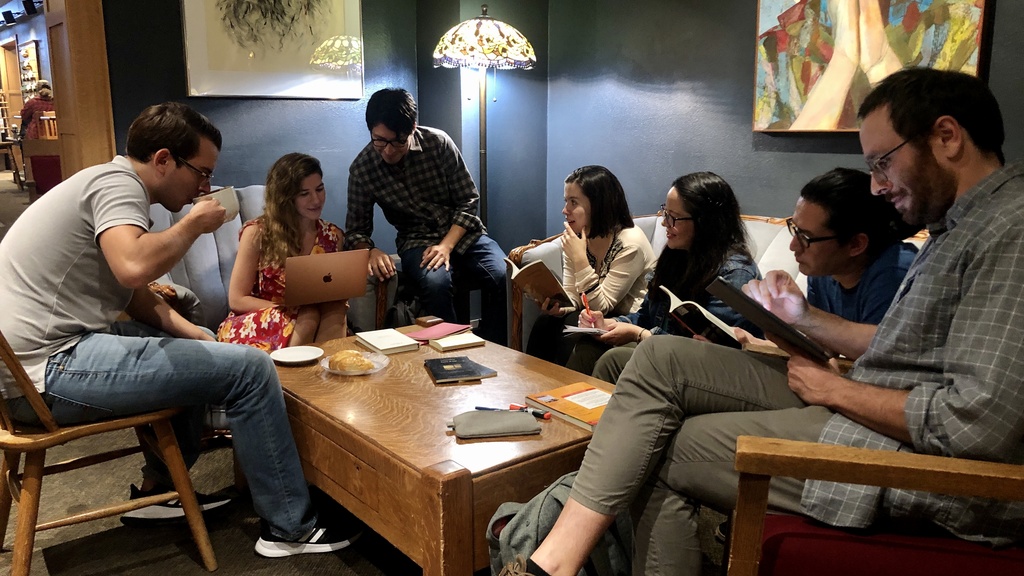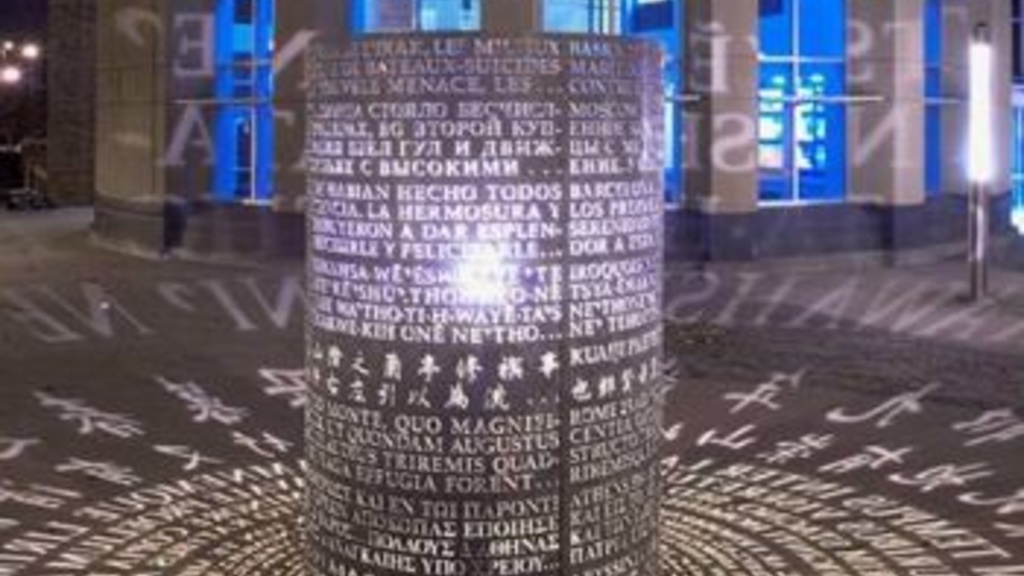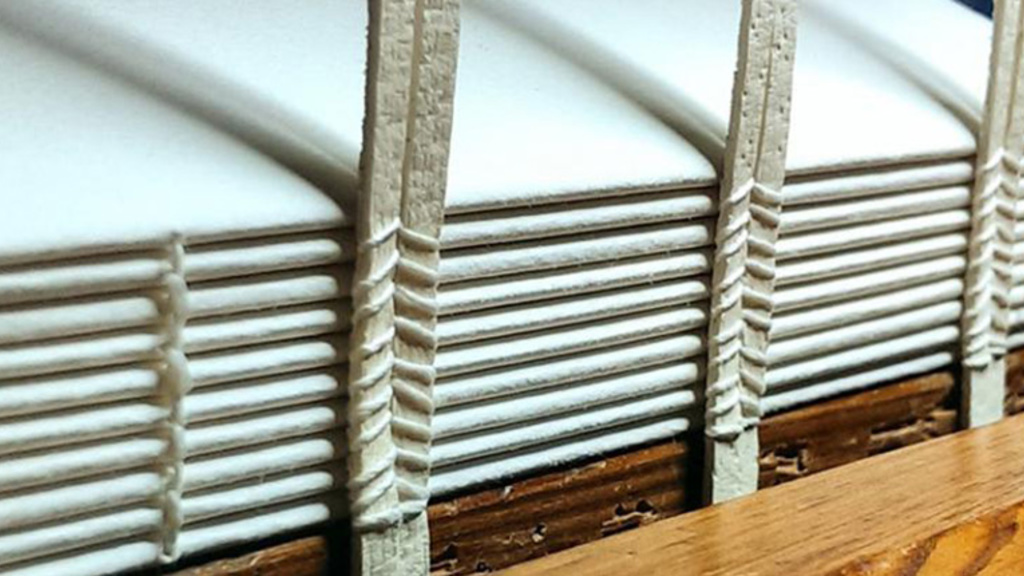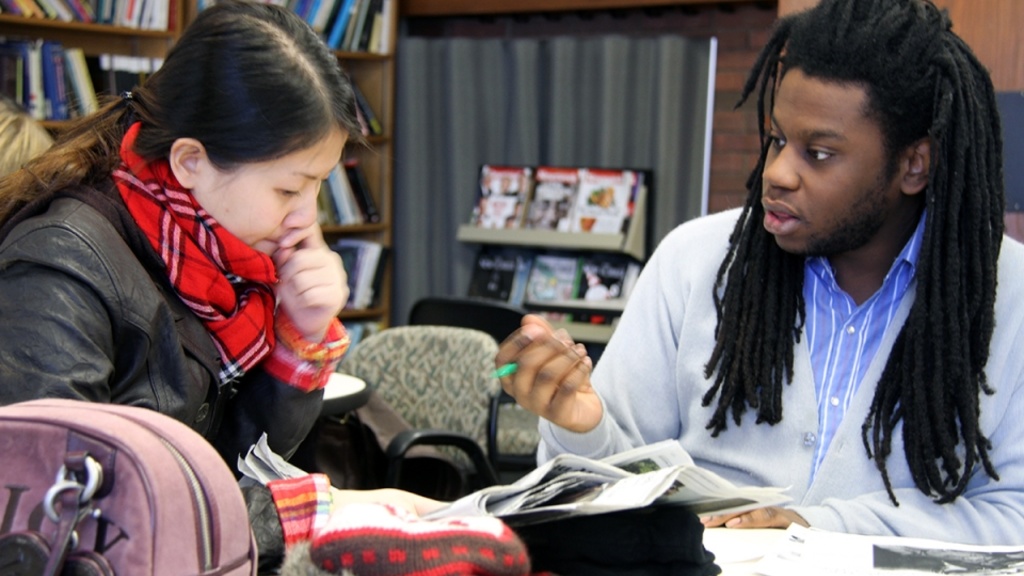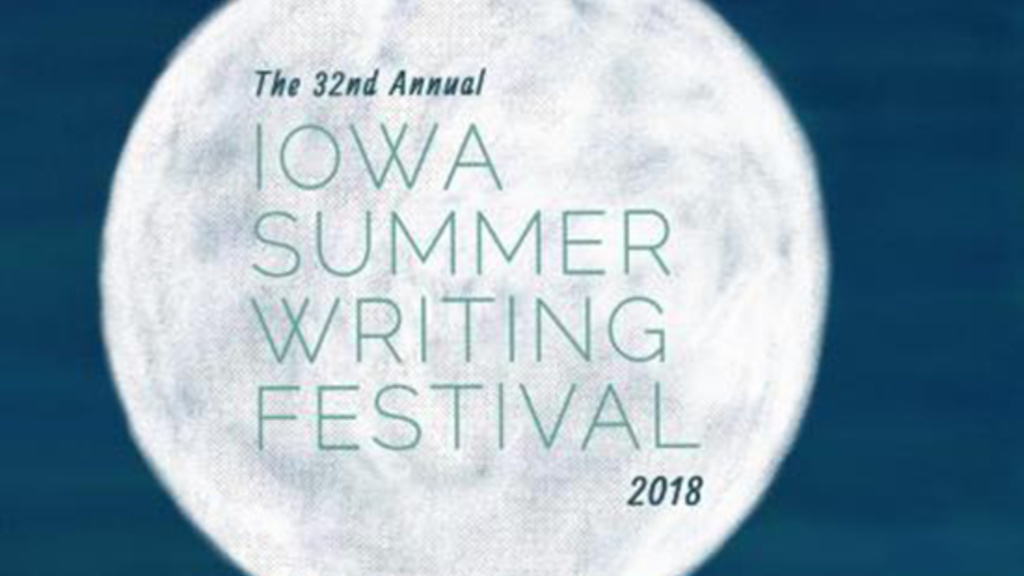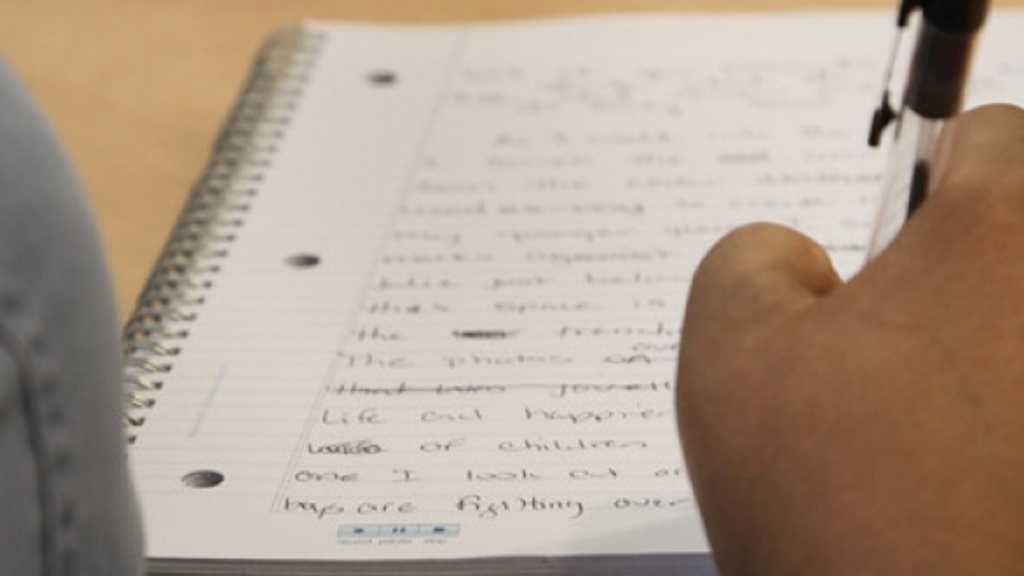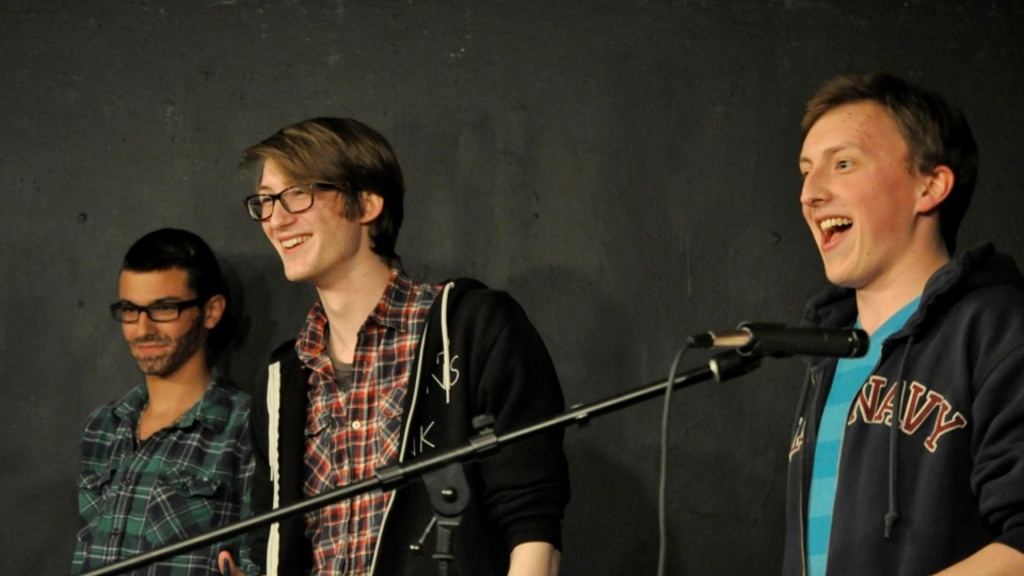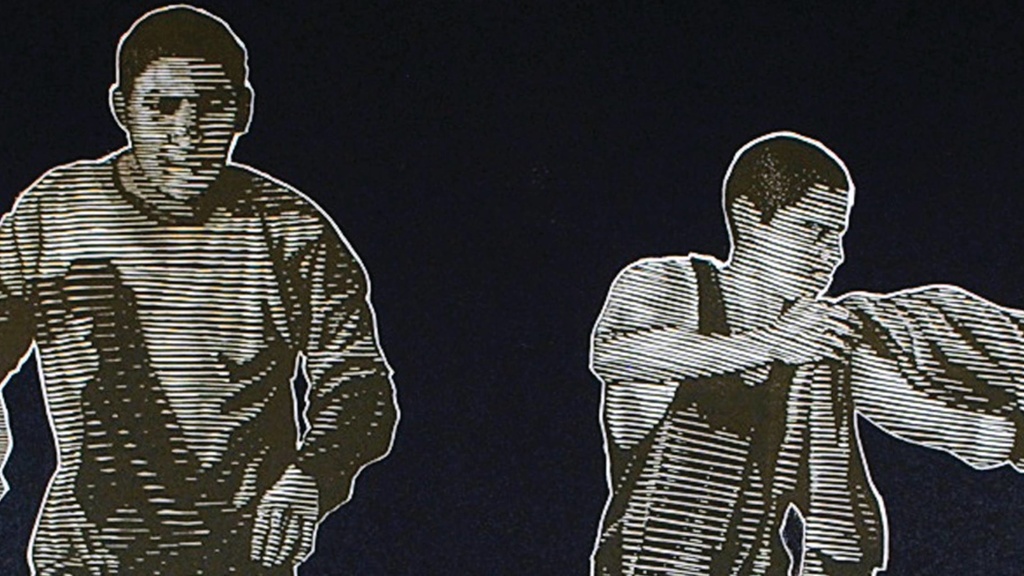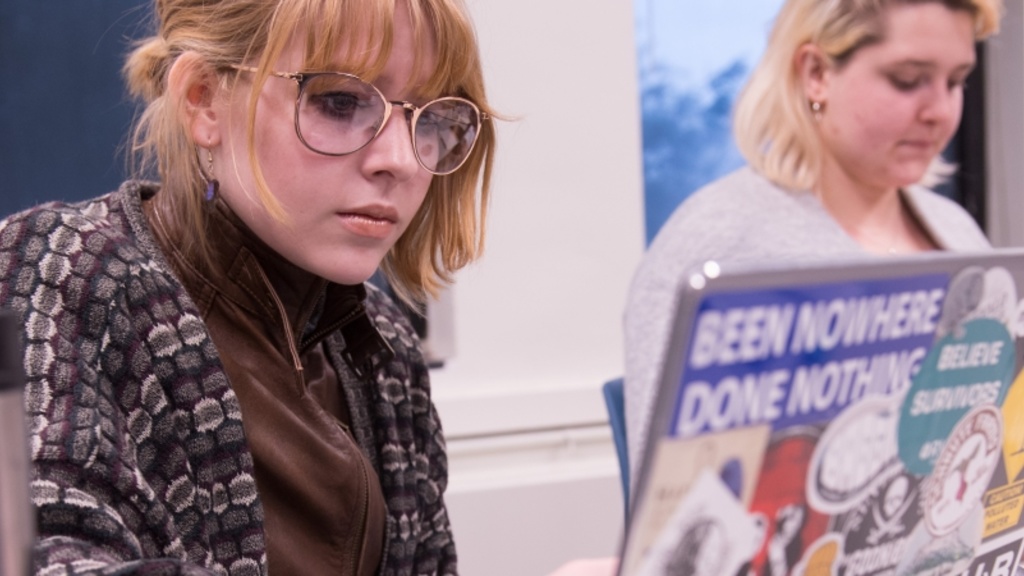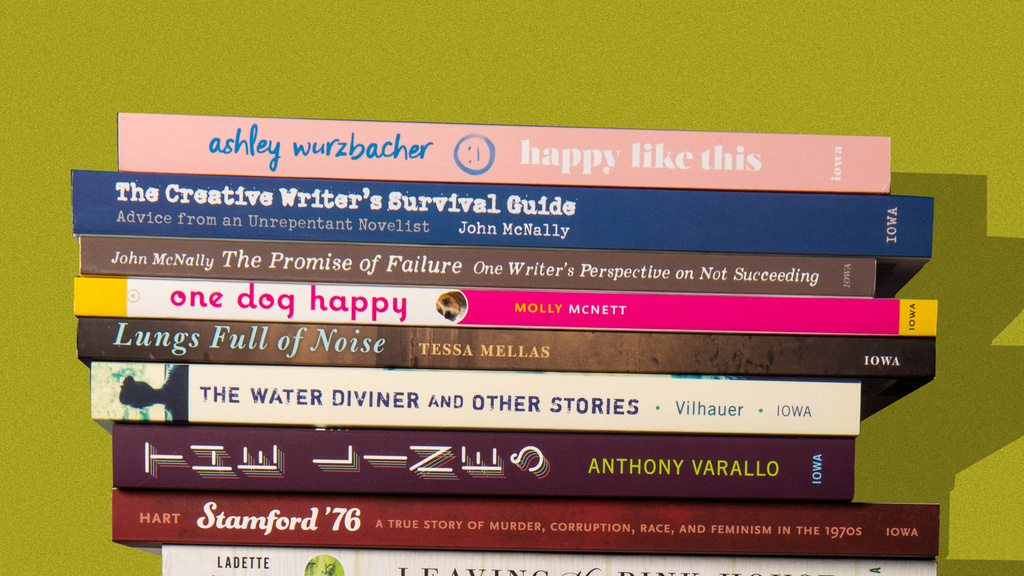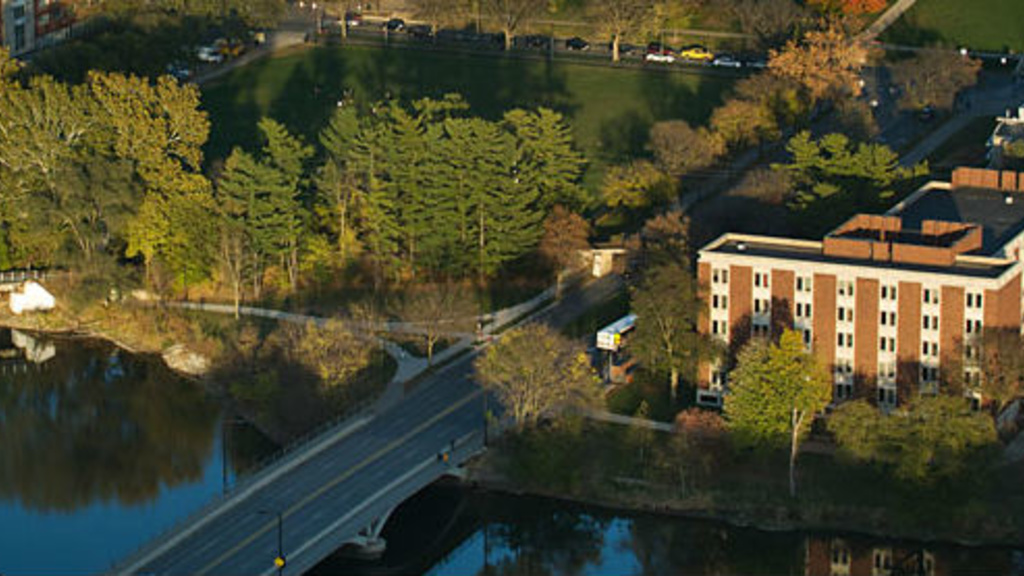Writing at Iowa
More than 40 Pulitzer Prize winners. Seven U.S. Poet Laureates. Countless award-winning playwrights, screenwriters, journalists, translators, novelists and poets. The University of Iowa’s writing programs shape the landscape of American literature.
Departments & Programs
Writing Centers & Resources
Iowa City Community Resources
Iowa City Community Resources
Iowa City Community Resources
Iowa City is an active community of writers and artists, with a multitude of opportunities and creative writing resources for the entire community. On almost any day of the week, you can find writing groups, community workshops, letterpress co-ops, creative writing events and more happening around every corner.
The History of Writing at Iowa

The University of Iowa’s tradition of great writing originates in its early and enduring commitment to the creative arts. Under the leadership of Carl Seashore in 1922, Iowa became the first university in the United States to accept creative projects as theses for advanced degrees. Traditionally, graduate study culminates in the writing of a scholarly thesis, but, under this new provision, works including a collection of poems, a musical composition, or a series of paintings could be presented to the Graduate College instead. Thus, Iowa established a standard for the Master of Fine Arts degree and secured a place for writers and artists in the academy.
The University of Iowa’s writing community flourished in the wake of this commitment to the arts. Though creative writing coursework was offered at Iowa as early as 1897, the curriculum expanded and diversified in the 1920s. Writers came from all over the country to enroll in courses in playwriting, fiction, and poetry writing.
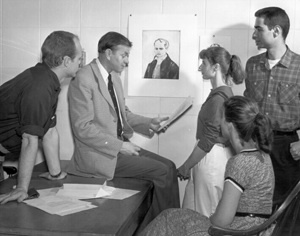
A new method for the study of writing emerged in these classes: the writing workshop. In a writing workshop, a senior writer leads a discussion about a work written by a member of the class; workshop students share impressions, advice, and analysis. As Paul Engle, director of the Iowa Writers’ Workshop and founder of the International Writing Program, observed: “the students benefited greatly from hearing a variety of attitudes toward their work. It was like publishing then being reviewed.” Workshop students receive honest and immediate feedback about their writing and become better critics of their own work. Many also discover the sympathetic but critical readers who they will turn to throughout their careers.
The Program in Creative Writing, known worldwide as the Iowa Writers’ Workshop, was founded in 1936 with the gathering together of writers from the poetry and fiction workshops. It was the first creative writing program in the country, and it became the prototype for more than 300 writing programs, many of which were founded by Workshop alumni. The Workshop remains the most prestigious creative writing program in the country and one of the most selective graduate programs of any kind, typically admitting fewer than five percent of its applicants.
Since its establishment, the Workshop has been the cornerstone of the writing community at the University of Iowa. In its early years, the program enjoyed a series of distinguished visitors, such as Robert Frost, Robert Penn Warren, Dylan Thomas, John Berryman, and Robert Lowell. Workshop students met with early success in publishing their work; thus began what Workshop director Frank Conroy would describe as the Workshop’s “self-fulfilling prophecy.” Talented writers teach and study here; this compels more to come and do the same. Iowa's perennial society of writers has grown considerably since the early days of the Workshop; this community has been a dynamic and sustaining force for growth and change. The logic of the “self-fulfilling prophecy” applies at an institutional level, as well as the individual. The University of Iowa set an early precedent for innovation in the study and practice of writing. This precedent created an environment where further advances, including the following, are possible, and likely:
- Students and faculty in UI writing programs collaborate with International Writing Program writers to translate new works of poetry and fiction in English.
- Each summer, students and alumni of the Writers’ Workshop mentor a new generation of authors at the Iowa Young Writers’ Studio, a summer camp for gifted high school-aged writers from around the country.
- A new Screenwriting MFA, where students are instructed on practical skills and knowledge needed to become successful members of the screenwriting industry
- Students from a variety of programs explore and create interpretations of print and print culture by studying book arts in the UI Center for the Book.
- Nonfiction Writing Program organized “NonfictionNow,” a conference to explore the state of nonfiction writing.
- The Patient Voice Project, created by students at the University of Iowa Writers' Workshop and Arts Share, offers creative writing classes to chronically ill hospital patients.
Iowa’s tradition of writing has been guided by the principle that, though writing is a solitary practice, it’s one significantly enriched by the presence of other writers. As Paul Engle wrote, “Our plan gives the writer a place where he can be himself, confronting the hazards and hopes of his own talent, and at the same time he can measure his capacity against a variety of others.” Through the years, some of the best writers in the world have come here to deepen their understanding of the craft of writing. Since 1939, 40 individuals with ties to the University of Iowa have been awarded Pulitzer Prizes; four recent U.S. Poet Laureates have been either students or faculty at the Iowa Writers’ Workshop. In 2006, Orhan Pamuk, a 1985 fellow of the International Writing Program, won the Nobel Prize in Literature. While the UI has been host to many award-winning authors, Iowa is known as The Writing University because countless numbers of writers at varying stages in their development have found a literary home here. High school students can study writing at the Young Writers’ Studio, and over 1,500 writers each year participate in over 130 workshops at the Summer Writing Festival. The departments of English, Journalism, Theater, and Cinema and Comparative Literature offer writing classes to undergraduates, and Iowa’s graduate programs in playwriting, nonfiction, translation, and journalism are some of the best in the country. The Writers’ Workshop is the country’s oldest and most celebrated graduate program in creative writing, and the International Writing Program hosts accomplished writers from around the world each fall. The following timeline provides an overview of important dates in the history of writing at Iowa. For more information about the writers who have taught and studied at Iowa, please visit the Writers page. or our LitCity project. A directory of all of the writing programs, as well as programs affiliated with writing at Iowa, is available from the Programs page.
The Virtual Writing University (VWU) is a collaborative, interdisciplinary initiative sponsored by the Graduate College and the Office of the Provost at the University of Iowa. The project launched in fall, 2006, with the mandate to create a virtual space for the University of Iowa's writing community. Its primary venue is the Writing University website (www.writinguniversity.org), a portal to the programs, news, and events associated with writing at Iowa, and a platform for special VWU Projects, such as LitCity, The Undergrad Writing Portal, First-Year Seminars and the Eleventh Hour Podcast.
People
Support for the Virtual Writing University comes from many different areas of the University of Iowa community. We are grateful for the many staff and faculty members who have contributed their creative, technological, and administrative expertise to this initiative.
Writing University Senior Editor
Lauren Haldeman, Senior Editor, The University of Iowa
Writing University Advisory Panel
Aron Aji, director of the Translation Workshop
Micah Bateman, Assistant Professor, SLIS
Lynne Nugent, Editor-in-Chief, The Iowa Review
Lan Samantha Chang, director of the Iowa Writers’ Workshop
Joan Kjaer, Strategic Communications Officer, International Programs Communications and Relations
Amy Margolis, director of the Iowa Summer Writing Festival
Christopher Merrill, director of the International Writing Program
Writing University Director
Christopher Merrill, director of the International Writing Program
Writing University Archive
Thomas Keegan, Director, Digital Library Services
Mark Anderson, Digital Initiatives Librarian
LitCity Project
Thomas Keegan, Director, Digital Library Services
Jim Cremer, Consultant, Computer Science Department
Loren Glass, Faculty, English Department
Nicole Dudley, Lead Database Developer
History of Writing at Iowa
Robin Hemley
Michael Allen Potter, Graduate Assistant
Technological Support
Wendy Brown, Web Production, University Relations Web Unit
Ken Clinkenbeard, Instructional Services, Academic Technologies
Ann Freerks, Designer, University Relations Web Unit
Andrew Rinner, Research Services, Academic Technologies
Paul Soderdahl, director of Library Information Technology, UI Libraries
Biographies of Writing University Project Leaders
Lauren Haldeman is the senior editor of the Writing University website. She is the author of Team Photograph, Instead of Dying (winner of the 2017 Colorado Prize for Poetry), Calenday, and The Eccentricity is Zero. Her work has appeared in Poetry, Tin House, The Colorado Review, The Iowa Review, Fence and others. A graphic novelist and poet, she’s received an Iowa Arts Fellowship, a Sustainable Arts Foundation Award and visiting artist fellowships from the Iowa Writers’ Workshop, Carnegie Mellon University, and Massachusetts College of Art and Design.
Christopher Merrill’s books include four collections of poetry, Brilliant Water, Workbook, Fevers & Tides, and Watch Fire, for which he received the Peter I. B. Lavan Younger Poets Award from the Academy of American Poets; translations of Aleš Debeljak’s Anxious Moments and The City and the Child; several edited volumes, among them, The Forgotten Language: Contemporary Poets and Nature and From the Faraway Nearby: Georgia O’Keeffe as Icon; and three books of nonfiction, The Grass of Another Country: A Journey Through the World of Soccer, The Old Bridge: The Third Balkan War and the Age of the Refugee , and Only the Nails Remain: Scenes from the Balkan Wars. His work has been translated into sixteen languages. He has held the William H. Jenks Chair in Contemporary Letters at the College of the Holy Cross, and now directs the International Writing Program at The University of Iowa.
